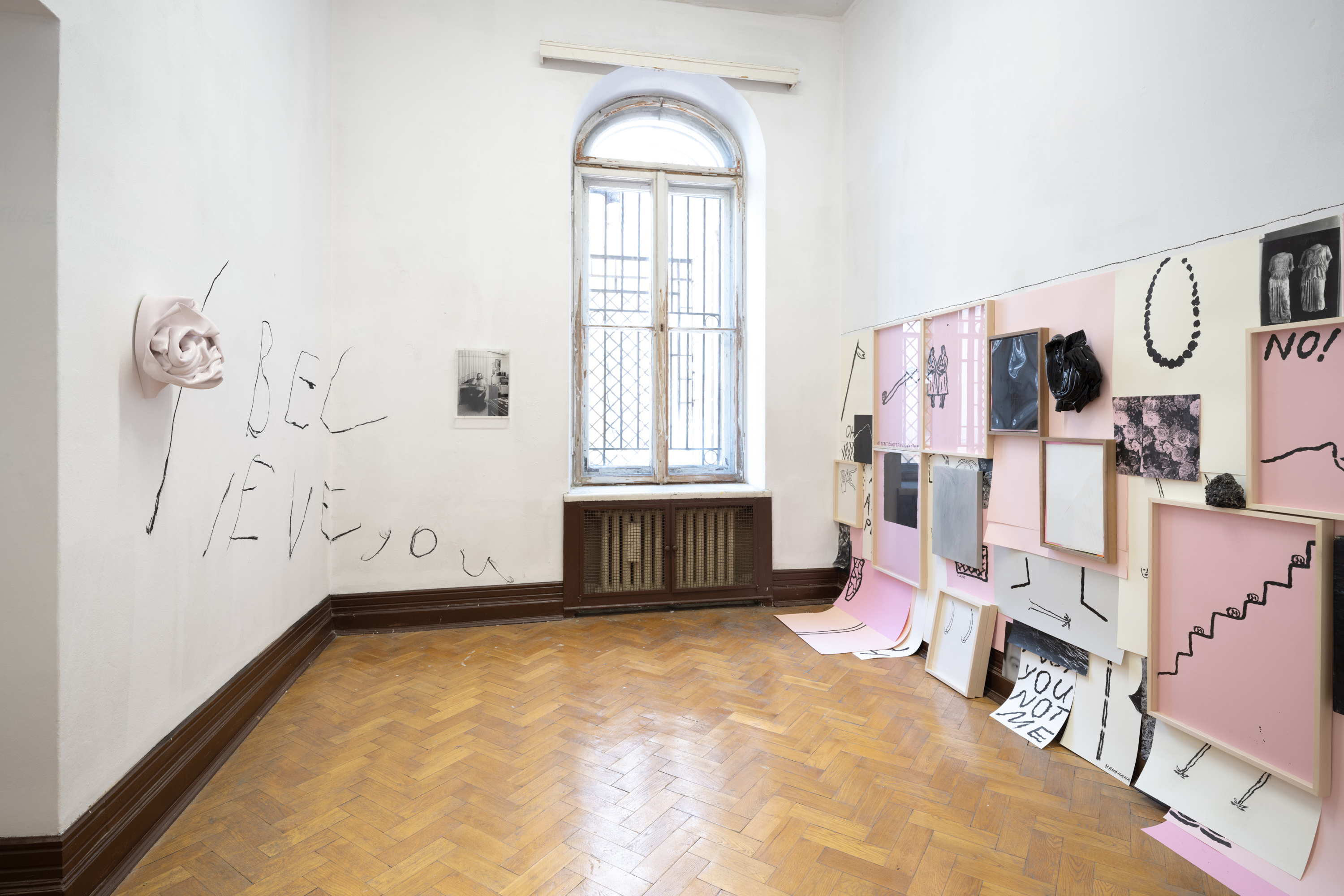Duo presentation with Maja Babič Košir
NADA Villa Warsaw
Villa Gawrońskich, Al. Ujazdowskie 23
Warsaw, Poland
16/05 — 19/05/2024
Curating and exhibition design: Piera Ravnikar
Organisation: RAVNIKAR Gallery
Photographer: Bartosz Gorka
NADA Villa Warsaw brought together a diverse selection of 44 international galleries and art spaces from 25 cities to present artists in a collaborative exhibition format, engaging the distinctive character of Villa Gawrońskich, a neo-baroque architectural landmark located in the heart of Warsaw. Organized with Michał Kaczyński (Raster), Marta Kołakowska (LETO Gallery), and Joanna Witek-Lipka (Warsaw Gallery Weekend), the initiative builds on Raster’s series of Villa Projects, an art fair alternative first initiated in Warsaw in 2006, with iterations held in Iceland, Japan, and Canada.
...............................................................................
Over the course of several
years of collaboration, artists Nevena Aleksovski and Maja Babič Košir have
developed a distinctive artistic expression, which they build through
multi-media and in situ spatial interventions. Their latest project, Letters
from the South (2024), is an example of a visually rich narrative that
interweaves aesthetically related creative practices into a unified wall
installation combining drawing, collage, painting, ready-made and sculpture.
In combining diverse media,
the artists treat the entire exhibition space as a blank canvas, on which they
gradually layer associations and, in a reciprocal dialogue, layer fragments of
stories that condition a more complex narrative. The dynamic and seemingly
effortless collaging of the works is weighed down by individual and collective
memories, commentaries and markers on the past and the present, which the
artists share from their position of women, creators and migrants. Both are
marked by the experience of emigration and the legacy of the former Yugoslavia,
a place that has undergone a radical socio-political transformation in recent
decades; the decline of the socialist system, the rise of neoliberalism,
accompanied by economic and, last but not least, health crises, widespread
insecurity and the radical digitalisation of life. In the context of constantly
changing social circumstances, unstable politics and cultural dynamics, the
artists today explore questions of belonging and a sense of familiarity in
foreign and primary environments, addressing issues of origin and identity. The
very motivation of the work and their understanding of their own roles have
been fundamentally defined by references to women's struggles and women's
positions past and present. In doing so, they adopt a highly engaged stance,
aware of the vulnerability of the position paved by their predecessors for
today's generation of women. The feminine and sensitive aesthetics that
distinguish both artists, behind their apparent fragility, consequently reveal
motives of emancipation and determination behind the artists' gestures.
The layering character of
the installation, despite the intense interplay of two related aesthetics,
allows the artists to maintain a certain degree of fragmentation and
singularity, fusing their practices into an inseparable whole. They allow
themselves the freedom of close coexistence of two visual expressions, which is
the result of several years of exchange of creative processes, mutual
understanding, trust and intimate immersion in personal archives and family
stories, co-shaped by the socio-political realities of each time. The moment of
sisterhood and solidarity developed through their co-creation imbues the work
with an unconcealed optimism that inspires them with hope, the search for
solutions and freer visions of the future.
Pia Miklič








